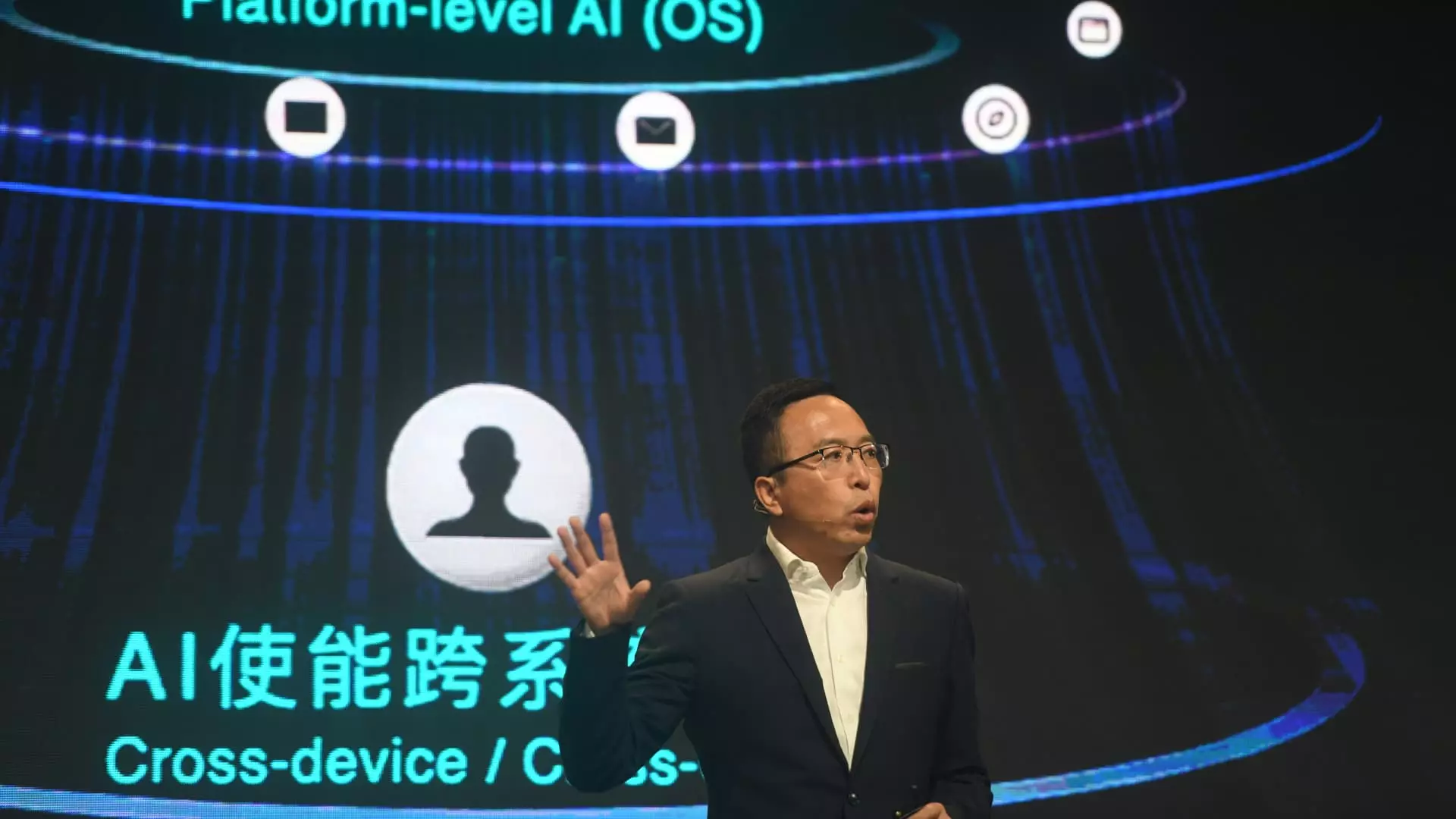In the fast-evolving landscape of the smartphone industry, the integration of artificial intelligence (AI) has become a focal point for companies vying to capture user attention. Chinese manufacturers, in particular, have been at the forefront of this movement, rolling out sophisticated AI capabilities that pose significant competitive challenges to established brands like Apple. This article delves into the implications of these advancements and how they impact the smartphone market dynamics, especially in China.
Chinese smartphone makers are increasingly embracing AI technologies to enhance their offerings, striving to outshine Apple in a saturated market. As Apple readies to introduce its own AI initiative, Apple Intelligence, it faces an uphill battle. The decision to restrict this rollout to regions outside China and the European Union may further alienate a crucial segment of its user base. This strategic choice highlights Apple’s dependence on regions where it has historically thrived, raising questions about its adaptability in the face of fierce local competition.
Research firm Canalys reports that Apple is no longer among the top five smartphone brands in China, underscoring the urgent need for the company to pivot its strategy. Competitors like Huawei have taken significant steps to innovate independently through the development of operating systems that shun reliance on Google, such as HarmonyOS. This system not only embodies a shift towards self-reliance but also integrates AI features that cater specifically to the needs of Chinese consumers. For instance, Huawei’s latest updates enable text translation and photo editing capabilities, showcasing the practical applications of AI in daily tasks.
Another notable player, Honor, which emerged as a spinoff from Huawei, is making strides in the AI realm with its Magic operating system. During a recent demonstration, the company revealed how its AI system could execute commands with minimal user intervention. Commands as simple as “I’m tired, order something” allowed the phone to autonomously process orders, alleviating the need for physical interaction until payment confirmation. This feature not only illustrates the power of AI in enhancing user experience but also indicates Honor’s aim to position itself as a premium brand within the increasingly competitive market.
Honor’s collaboration with Baidu and other domestic tech firms for AI functionality further exemplifies its commitment to fostering a robust ecosystem that supports innovation. The upcoming release of the Magic 7 smartphone, equipped with Qualcomm’s Snapdragon Elite 8 chip, is expected to take these capabilities even further. Fellow Chinese brand Xiaomi is also set to unveil a device using the same technology, striving to remain relevant in a market that continues to pivot towards AI-driven experiences.
The increasing focus on AI by local brands is not without consequences for Apple. As of June 2023, reports indicated that only 17% of Apple’s total revenue was generated from Greater China, a decline from 19% the previous year. This trend reveals a shifting consumer preference and a potential weakening of Apple’s market hold in a region that once represented a significant portion of its profits. With screen prices for Apple’s latest iPhone models also showing a drop in the second-hand market, it becomes evident that consumers are exploring alternatives, primarily driven by the allure of advanced technology and value.
As Apple prepares to release its quarterly results, the pressure is mounting. Interactions between CEO Tim Cook and Chinese officials indicate that the company is aware of these challenges and seeking ways to adapt, particularly concerning data security and cloud services. Such discussions are key to maintaining relationships in a market that is rapidly evolving and where consumer expectations are soaring.
The rapid advancements in AI technology by Chinese manufacturers not only represent a challenge for Apple but also set a precedent that could reshape the global smartphone landscape. Companies that fail to innovate and adapt to the increasing demand for AI capabilities may find themselves slipping further behind, not only in China but also in international markets where consumers are becoming more discerning.
Moreover, the developments in China are reflective of broader trends in the tech industry. The push for autonomy from large platforms like Google signals a desire for innovation that is more aligned with local preferences and security requirements. As the smartphone market evolves, the ability to integrate AI effectively will likely become a defining characteristic of successful brands, compelling global competitors to rethink their strategies.
The rise of AI in Chinese smartphones represents a formidable challenge for Apple, pushing it to rethink its approach in a critical market. As domestic players leverage AI to enhance their offerings, the pressure will only intensify for Apple to innovate and re-engage with a potent consumer base that is increasingly exploring alternative options.

